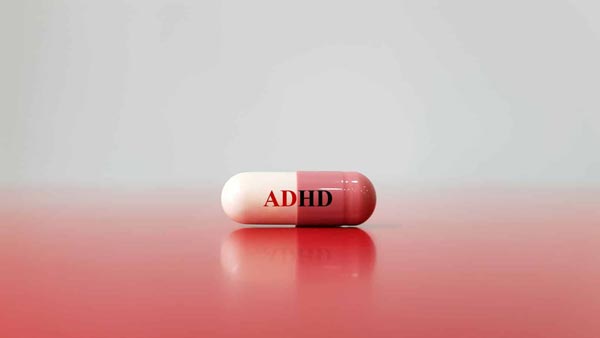How Long Does Adderall® Stay in Your System? Urine, Blood, Saliva, and Hair Detection Times
Adderall® is a prescription stimulant commonly used to treat ADHD and narcolepsy. It contains mixed amphetamine salts, which increase dopamine and norepinephrine in the brain. Because Adderall® acts on the central nervous system, it is frequently tested for in drug screenings.
On average, Adderall® stays in your system for 2 to 4 days, but it may be detectable for significantly longer depending on dosage, metabolism, and type of drug test.
Adderall® Detection Times by Test Type
The following chart shows typical detection windows for Adderall®:
| Test Type | Detection Window |
|---|---|
| Urine | Up to 4 days (longer for chronic use) |
| Blood | Up to 24 hours |
| Saliva | 1 to 3 days |
| Hair | Up to 90 days |
These ranges depend on many individual factors, including metabolism and the type of Adderall® prescribed.
Adderall® Half Life: How the Drug Breaks Down
The half life of Adderall® is approximately 9 to 14 hours. This means it takes the body around half a day to eliminate half of the amount ingested. Total elimination usually requires several half lives, which is why Adderall® may be detectable for multiple days.
The half life may be longer for:
- People with slower metabolism
- Older adults
- Those with liver or kidney issues
- People who use Adderall® daily
Factors That Affect How Long Adderall® Stays in Your System
- Dosage: Higher doses last longer.
- Frequency: Daily users metabolize the drug more slowly.
- Body Fat: Amphetamines are partly fat soluble.
- Age and Health: Liver and kidney function impact clearance.
- Hydration: Concentrated urine increases detection.
- Type of Adderall®: Immediate release vs extended release.
Can You Fail a Drug Test While Taking Adderall®?
Yes. Adderall® contains amphetamine salts, which are detected as amphetamines on drug tests. Even when taken as prescribed, drug screens will typically show a positive result unless documentation is provided.
Immediate Release vs Extended Release Detection
Adderall® IR (Immediate Release) and Adderall® XR (Extended Release) have different clearance times.
- IR: Leaves the system more quickly.
- XR: Releases medication over several hours and stays detectable longer.
How Long Adderall® Lasts in the Body
- Effects last: 4 to 6 hours (IR) or 10 to 12 hours (XR)
- Detectable: Up to several days depending on test type
Risks of Misusing Adderall®
Misuse of Adderall® can lead to dependence and dangerous physical symptoms. People may misuse Adderall® for studying, energy, weight loss, or recreational stimulation.
Common risks include:
- Increased heart rate
- Anxiety or agitation
- Insomnia
- High blood pressure
- Dependence
- Reduced appetite
- Heart complications
Treatment Options for Adderall® Misuse
The Heights Treatment in Houston provides support for adults experiencing stimulant misuse, Adderall® dependence, or ADHD symptoms that have worsened due to misuse.
We offer:
- Psychiatric evaluation
- Medication management
- CBT and DBT therapy
- ADHD treatment
- Dual diagnosis care
- PHP and IOP programs
Internal resources you may find helpful:
When to Seek Help
If Adderall® misuse is affecting your health, mood, or daily functioning, support is available. Treatment can help reduce cravings, stabilize mood, and improve long term mental health.
Call The Heights Treatment at (832) 979 3625 or visit The Heights Treatment to schedule a confidential assessment.
Sources
- National Center for Biotechnology Information – Amphetamines
- National Institute on Drug Abuse – Stimulants
- U.S. Food and Drug Administration





